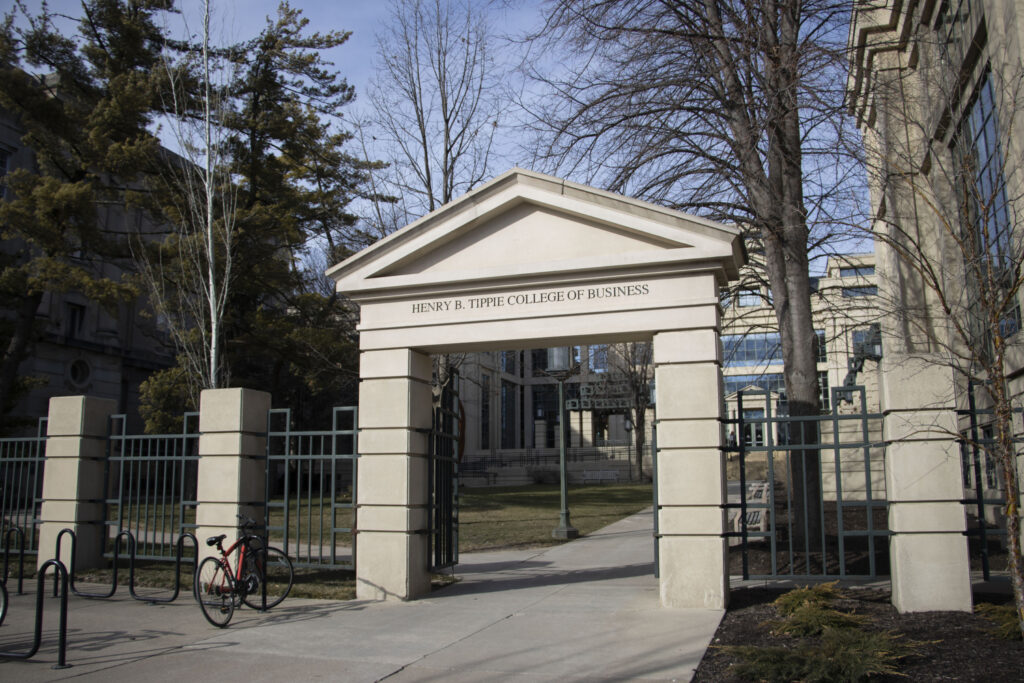The shots were fired early on the morning of Dec. 4, striking UnitedHealthcare CEO and 1997 valedictorian of the University of Iowa Brian Thompson as he walked toward the Hilton Hotel in Midtown Manhattan.
Thompson was pronounced dead in what the New York Police Department called a brazen, targeted attack, and the search for the suspect, captured on surveillance footage wearing a face mask, was on.
On Dec. 9 in Altoona, Pennsylvania, police responded to a tip from a McDonald’s employee who reported a customer resembling the multiple surveillance images released by the NYPD of the murder suspect.
Officers apprehended 26-year-old Luigi Mangione, who was found with a homemade gun matching the murder weapon, a fake New Jersey ID previously used by the suspect in New York City prior to the killing, a face mask resembling those in the images, and a handwritten manifesto expressing disdain for the health care industry and corporate America.
Mangione faces Pennsylvania gun charges and extradition to New York for murder.
At a Dec. 9 press conference announcing Mangione’s arrest, NYPD Commissioner Jessica Tisch stated the case had captured the attention of the entire nation. While that was undoubtedly true, the murder of Brian Thompson garnered a divided response, as many were not mourning his death.
Following Thompson’s murder, UnitedHealthcare’s Facebook post expressing grief over his death drew 62,000 reactions — 57,000 of them laughing emojis, according to CNN. Across social media, users left biting comments about the health care industry, with many joking that Thompson’s shooting was a “pre-existing condition” or that their “thoughts and prayers required prior authorization,” as recounted by writer Jia Tolentino on NPR.
After Mangione’s arrest, the Altoona McDonald’s, where he was taken into custody, faced a flood of negative reviews from his sympathizers, while Amazon removed several apparel items expressing support for him, according to The Hill.
Public mockery of the tragedy reveals a simmering discontent with the inequities of the American health care system, which critics argue has perpetuated suffering for profit.
The Harvard Gazette reported in 2009 that lack of health insurance leads to an estimated 45,000 deaths annually. Even those insured face financial strain, with a 2019 American Journal of Public Health study linking medical issues to two-thirds of bankruptcy filings and a 2021 MITRE-Harris poll revealing that 75 percent of insured Americans worry about medical bills.
As these concerns and preventable tragedies become more common for the working class population, health care CEOs continue to profit. It’s a system that many, including Mika Covington, the co-chair for the Iowa City Democratic Socialists of America, or DSA, call broken.
“[Thompson’s] death was horrific. And none of us at [Democratic Socialists of America] support murder,” Covington said. “I personally feel for his children and wife because I know losing a father is tragic. I lost mine just last year.”
However, Covington acknowledged understanding the frustration behind the varied responses to Thompson’s murder, sharing that a lack of health insurance worsened her father’s death, and she herself faces challenges living with a rare genetic disorder called cystinosis.
“This whole health care system, it’s exhausting. It’s destroying people’s lives,” Covington said. “No one in this country should die because the insurance company is refusing to cover vital life-saving care.”
Covington said her support for democratic socialism is rooted in the belief that the for-profit health care model should be replaced with a single-payer system — a view shared by nearly two-thirds of Americans. A Dec. 9 Gallup survey found that 62 percent of adults believe the federal government should ensure health care coverage for all, marking the highest support in over a decade.
Covington underscored the DSA’s firm stance against violence, emphasizing that Thompson, despite representing an industry many find deeply flawed, was still a person with a family.
Just weeks before his death, Thompson hosted members of the business fraternity Delta Sigma Pi at UnitedHealth Group’s Minneapolis office. Thomas Stroud, president of the UI chapter, described the experience as inspiring and uplifting.
“We greatly appreciate him taking the time to speak with us. His leadership and candid midwestern spirit left a lasting impression on all of us,” Stroud wrote in an email statement to The Daily Iowan. “Our sympathies go out to everyone impacted by this tragic situation.”
The Tippie College of Business, from which Thompson graduated in 1997 as valedictorian and recipient of the Delta Sigma Pi Scholarship Key, highlighted his impact on students in a statement from Dean Amy Kristof-Brown provided to the DI by UI media relations specialist Tom Snee.
“His sudden and tragic death is challenging to grasp, particularly for those who knew him. Our sympathies are with his wife, Pauley, also a Tippie graduate, their family, friends and colleagues as they deal with this tragic news,” the statement read.
As Thompson’s wife and two sons mourn privately, the nation grapples with the deep divides in America’s health care system and the reality of so many taking to social media to mock a murder.
Source link : http://www.bing.com/news/apiclick.aspx?ref=FexRss&aid=&tid=67622c247feb4f7b8338c9428674fcd1&url=https%3A%2F%2Fdailyiowan.com%2F2024%2F12%2F17%2Funitedhealthcare-ceos-murder-highlights-americas-deep-health-care-frustrations%2F&c=7919276544020276195&mkt=en-us
Author :
Publish date : 2024-12-17 12:21:00
Copyright for syndicated content belongs to the linked Source.
